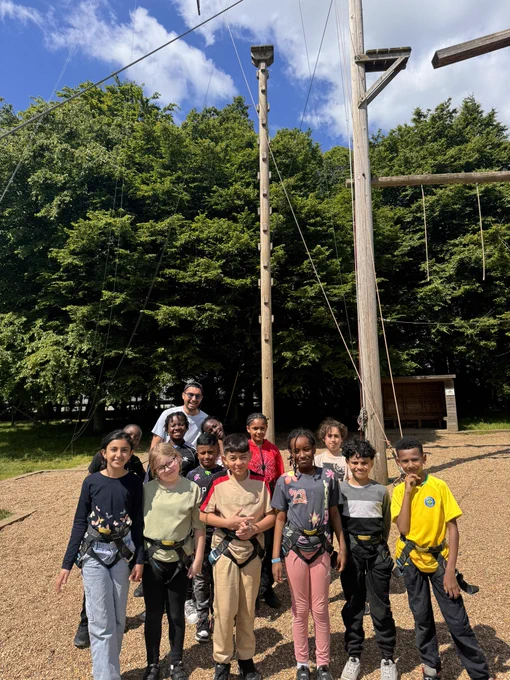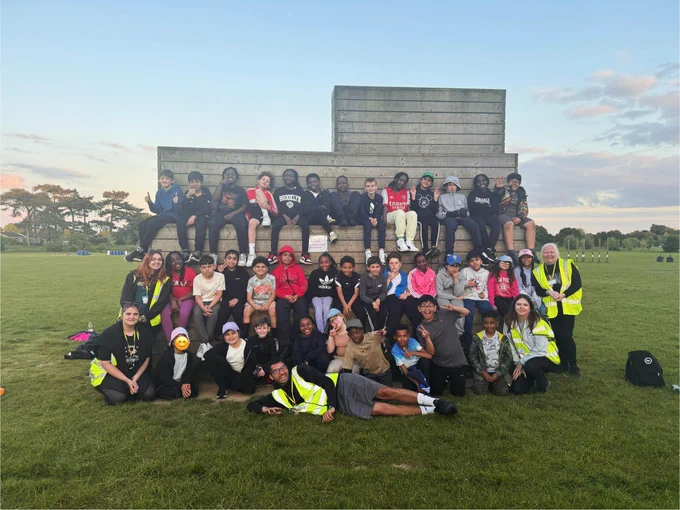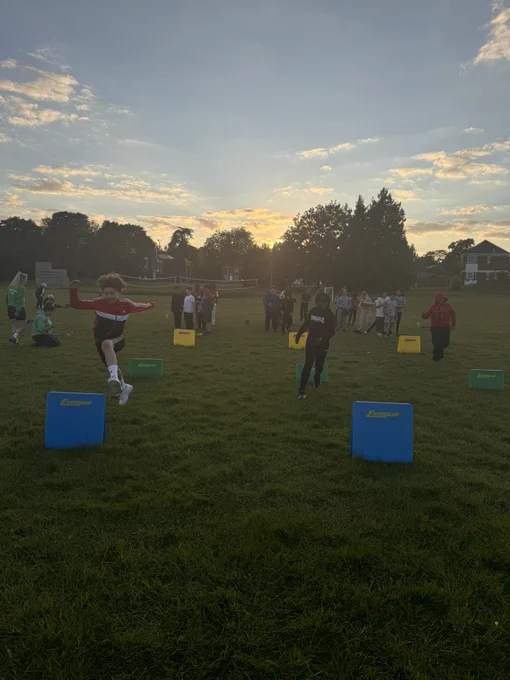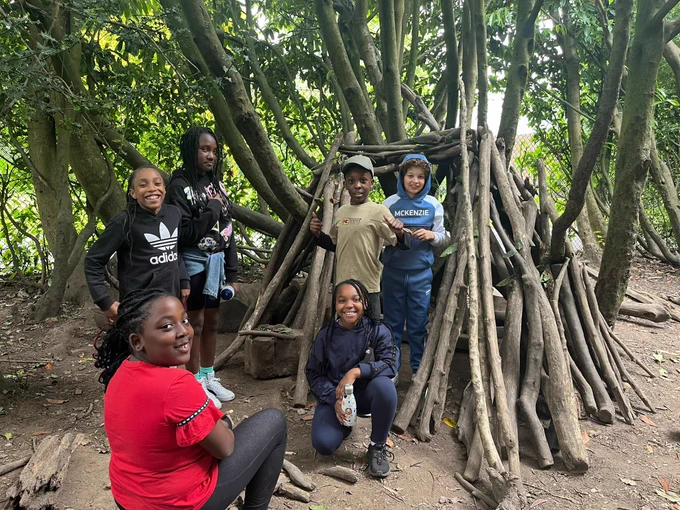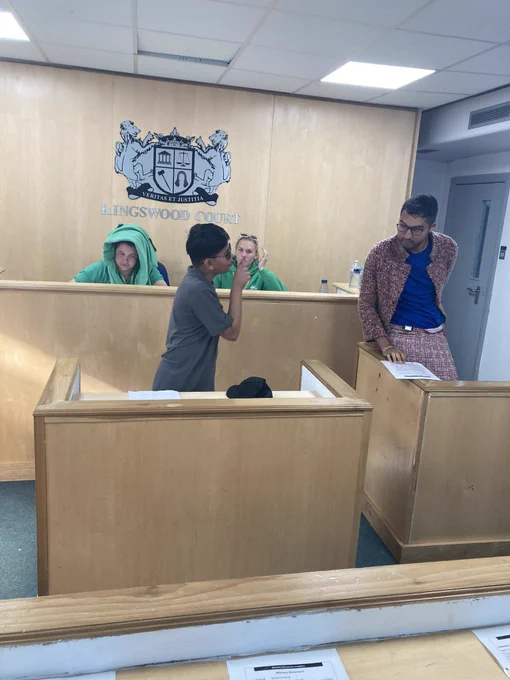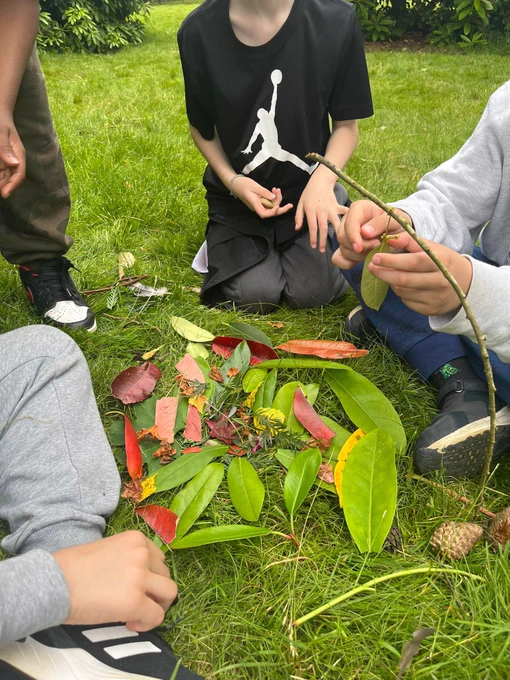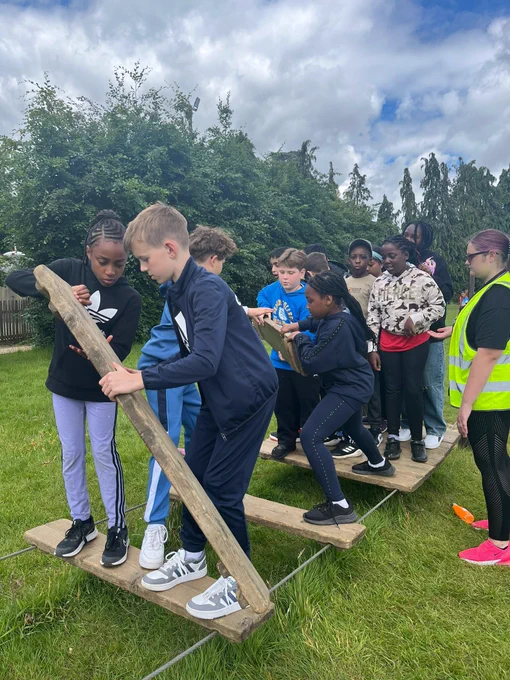English
Intent: Introduction, Vision and Philosophy
The purpose of this document is to clarify the how, why, and what of English teaching at Harris Primary Academy Merton. This is to be used by staff to clarify expectations, highlight the resources that we have at our disposal, and to ensure that a high-quality English curriculum is being taught to all. At Harris Primary Merton, we want our children to be creative writers who read for pleasure, as well as for information. They learn a wide range of vocabulary and knowledge of linguistic conventions for reading, writing and the spoken language. We instil in our children the importance of discussion to learn; they are taught to be able to elaborate and explain clearly their understanding and ideas.
At Harris Primary Merton, we believe that children should be able to speak and write fluently so that they can communicate their ideas and emotions to others and through their reading and listening, others can communicate with them. Through reading, children have the chance to develop culturally, emotionally, intellectually, socially and spiritually. All the skills of language are essential to participating fully as a member of society; pupils, therefore, who do not learn to speak, read and write fluently and confidently are effectively disenfranchised.
Implementation:
What does English look like at HPAM? Overview:
English is taught across the school focusing on the following different skills: Phonics, SPaG (Spelling, Punctuation and Grammar), Reading, Handwriting, Speaking and listening, and writing. We teach Reading, Phonics, Spelling and Handwriting separately outside of our English lessons as these are key skills the children will need in order to access the learning in their English lesson and therefore must be given precedence.
Phonics
Phonics is taught in 40-minute lessons to give children quick, regular practise at least 5 times a week. From EYFS children begin the Read Write Inc (RWI) programme. Lesson plans are taken from the lesson structures in the RWI folders (in each classroom) and children are taught initial sounds alongside a mnemonic to help their recall. The programme is designed to ensure that children are taught reading rigorously; ensuring that they have the skills to approach new words with confidence, and developing their fluency to ensure they are able to become competent readers.
Each 40-minute phonics session has a minimum of three RWI ‘lessons’.
SPaG (spelling, punctuation and grammar)
SPaG is taught as part of the main English lesson each day. Lessons follow a weekly (or however long is needed) focus on a different punctuation, grammar or spelling focus for each week using the National Curriculum guidelines along with the school’s SPaG overview. Lessons will go together with the genre of writing that is being taught in literacy lessons to accompany the skills that they need to learn for that particular writing style.
Spellings are taught once a week and focus on a spelling pattern for each week. The children are taught using a task that they are then able to take home to practise along with a list of spellings containing that pattern. These are tested weekly (every Wednesday) at the start of each English lesson.
Reading
Whole class reading is taught throughout the school. There are 5 reading lessons per week, each lasting for 30 minutes. On a Monday and Friday children read their own books, for pleasure. During these sessions, children read to an adult, change their books and develop their own preferences re book choice. Each class book corner is stocked with high quality texts to engage the children. The other 3 lessons a week are taught as a whole class, all sharing one text. The text is carefully chosen to be pitched at a level above the reading level of the children in the class. These sessions are where the children get to be read to by an adult who can role model high quality reading skills. Each session will then focus on a reading statement allowing children to develop all the skills they need to be effective readers- vocabulary choices, grammar choices, prediction, inference and deduction, authorial intent and style etc. Each of these skills is presented to the children as a detective skill.
Children record brief outcomes in their reading journal to record their learning.
Achievement will be measured through learning walks, pupil voice interviews and the outcomes of reading assessments.
Handwriting
Children take part in regular handwriting practise every day. Handwriting is a practised skill that they take part in before their English lesson or after lunchtime. Using the Nelson handwriting programme, children practise the set of patterns by copying the joins from the IWB before moving on to forming words using these joins. Joins are introduced at the end of year 1.
English lessons
At HPAM we teach children writing skills through a range of vocabulary rich texts. Each year group focuses on one text per half term and teaching is supported by the reading of the texts. Suggested genres are available to teachers to help teach different writing skills across a unit; a range of fiction, non-fiction and poetry genres are taught. Genres of writing will often span over one or two weeks depending on the genre and writing outcome. To become immersed in the subject matter, teaching sequences may cover speaking and listening or drama activities. These ensure that children can listen and respond appropriately to adults and their peers, ask relevant questions to extend their understanding and knowledge and use relevant strategies to build their vocabulary. Children participate in discussions, presentations, performances, role play, improvisations and debates to develop their speaking skills. Teachers are encouraged to use a range of techniques, including Talk for Writing. From speaking and listening activities, lessons will then move on to grammar skills (if necessary) and then begin to plan, using various methods, their final writing outcome. Children are given the opportunity to edit and make final drafts before presenting their work.
Impact
Evidence and Assessment
Recording of lessons in English books is required to show a journey of the child’s learning through each topic. The work in their books supports their ability to remember what learning has come before their current learning. Children can record their lesson in the most appropriate way; a range of different methods is encouraged to allow children to be exposed to different ways of demonstrating their understanding. Photographs of drama lessons, for example, are a good way of reminding children of what skills they learned in that drama lesson and they should be given the opportunity to reflect on this learning.
Assessments of the children’s writing is made half-termly whereby a range of extended, independent writing is used to assess the progress and attainment of their writing. Through this assessment, half-termly targets are given and recorded in their literacy books for the children’s reference. Teacher expect to see
Teachers should also give children feedback marking by using the following marking key:
Sp A maximum of 3x incorrect spellings
Teachers will highlight ‘good’ things about the work in green highlighter and leave a comment at the end of the work. Teachers will highlight something that needs to be checked or improved in orange highlighter and explain what they need to do at the end of the work.












